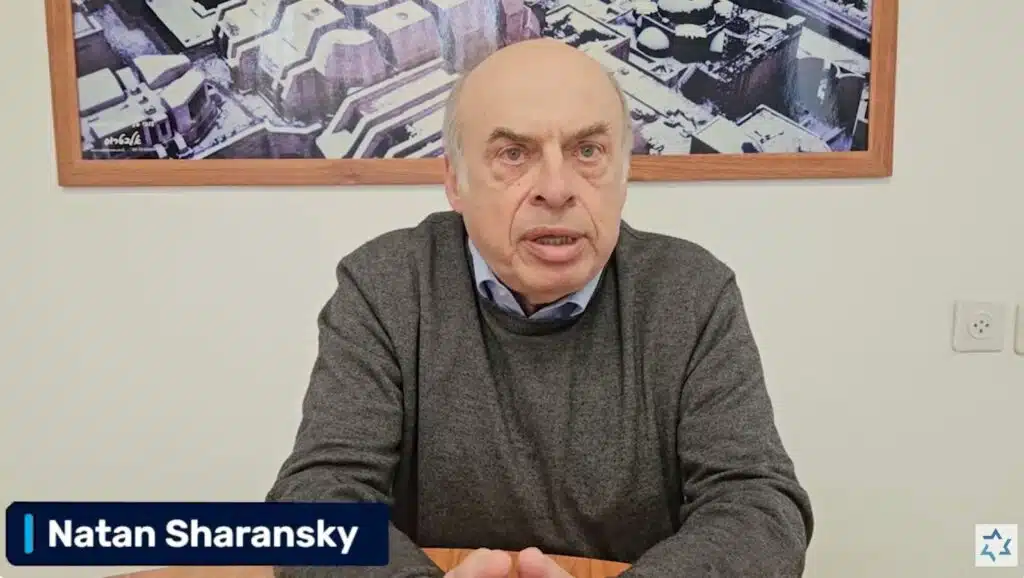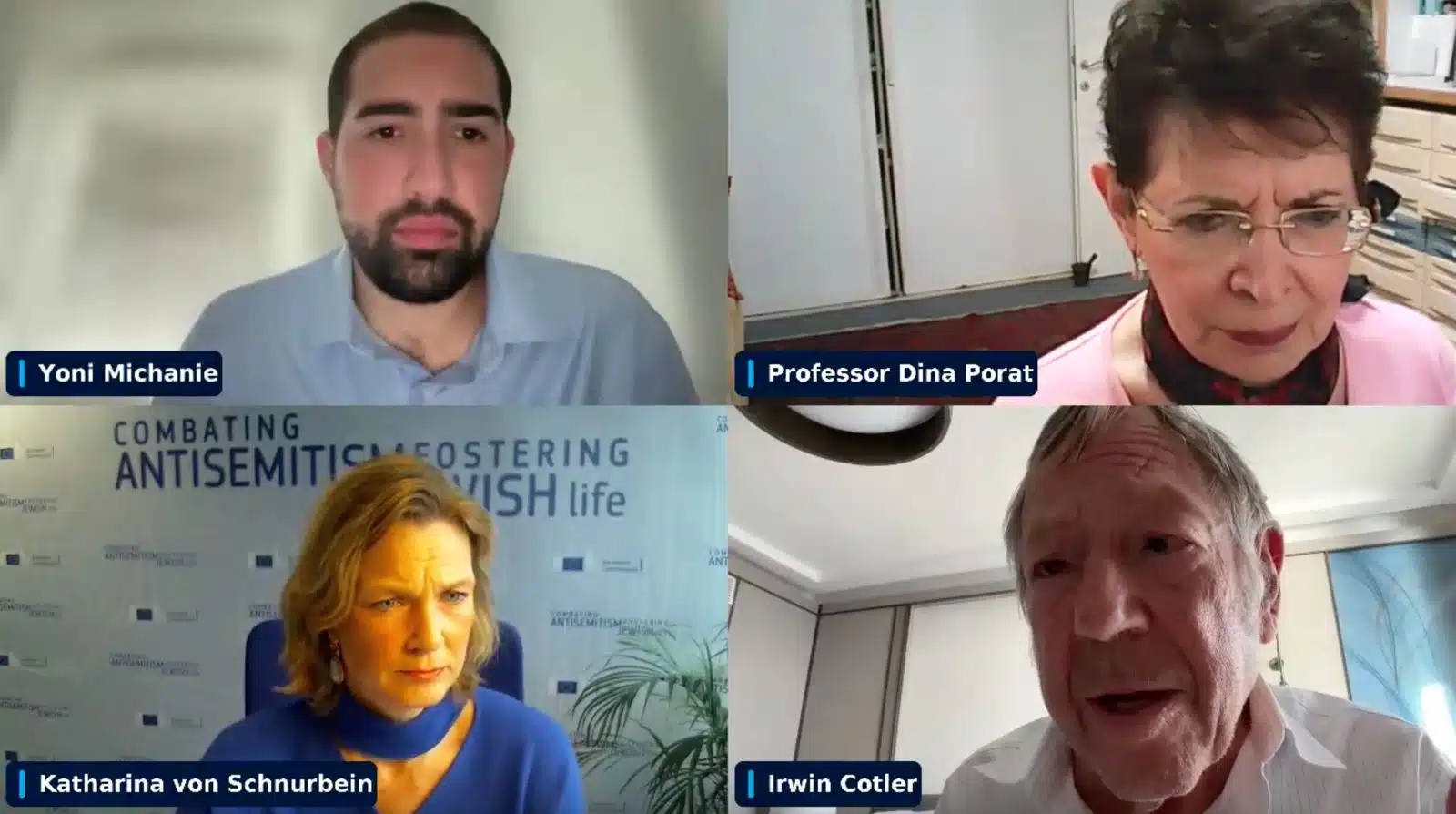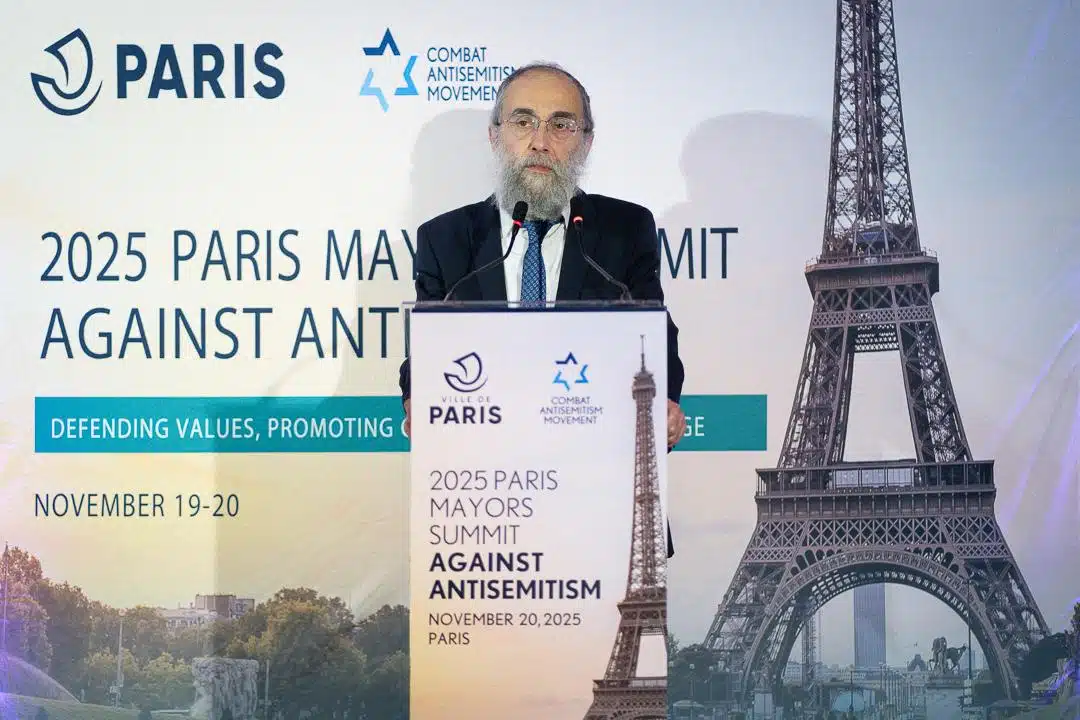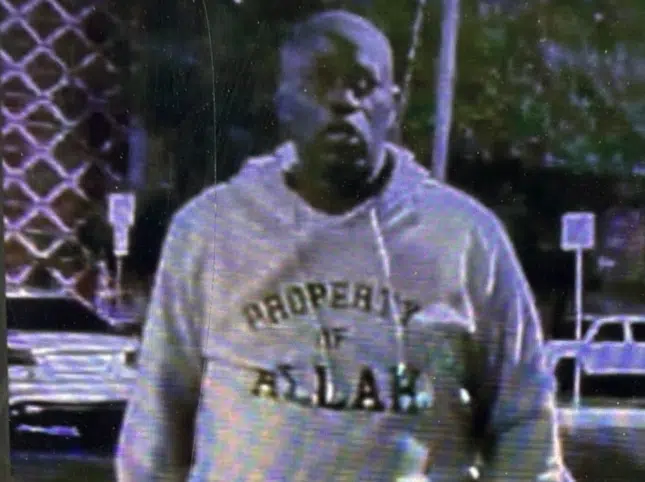|
Getting your Trinity Audio player ready...
|
The global surge of hatred targeting Jews across the globe in the aftermath of the October 7th massacre in Israel has further underscored the urgent need for widespread adoption and implementation of the International Holocaust Remembrance Alliance (IHRA) Working Definition of Antisemitism.
As of the end of this past December, a total of 1,216 entities had adopted or endorsed the IHRA working definition, including 97 new adoptions and endorsements in 2023, according to the annual report published by the Combat Antisemitism Movement (CAM) in partnership with the Center for the Study of Contemporary European Jewry at Tel Aviv University.
However, the report noted that American institutions of higher learning were noticeably lacking in their embrace of the IHRA definition, with only one adoption last year.
Furthermore, CAM’s Antisemitism Research Center (ARC) monitored a 58.2% increase in monitored antisemitic incidents globally in 2023 from the previous year, recording 3,046, compared to 1,925 in 2022 and 2,215 in 2021.
A comprehensive analysis of the 2023 data showed a significant development — incidents of antisemitism from far-left (1,019) and far-right (1,021) sources reached parity. This marked the first-ever occurrence of such an alignment, with each ideology contributing 33.5% to the total monitored incidents.
CAM held a special virtual forum on Thursday for experts and antisemitism victims to weigh in on these developments. The event was moderated by CAM Research and Data Manager Yoni Michanie, and speakers included: Professor Dina Porat, Founding Head of the Center for the Study of Contemporary European Jewish History at Tel Aviv University and CAM Advisory Board Member; Natan Sharansky, Chair of the CAM Advisory Board; the Honorable Irwin Cotler, Human Rights Lawyer, CAM Advisory Board Member, and Former Canadian Minister of Justice; Katharina Von Schnurbein, European Commission Coordinator on Combating Antisemitism and Fostering Jewish Life; and Tomer Ben-Ezer, Israeli-American student at American University in Washington, D.C.
Watch a full recording of the event HERE:
“The IHRA definition has proved itself over the years really as a tool and as a means to express a moral position,” Professor Porat noted. “By adopting the definition, one actually says they are ready to fight antisemitism and other evils as well.”
Sharansky stated, “One of our tasks at CAM is to promote the IHRA definition of antisemitism and insist why this definition should be accepted as the central one to deal with the real problem of antisemitism globally. What sets the IHRA definition apart from all the others is it insists there is a direct connection between antisemitism and anti-Zionism. Of course, not all criticism of Zionism and Israel as a Jewish state is antisemitic. But the moment this criticism turns into demonization and delegitimization of Israel as a Jewish state and double standards applied to no other country, that’s what antisemites have been doing for thousands of years against Jews.”

Cotler noted that the recent rise of antisemitism worldwide had made the “adoption and implementation of the IHRA working definition all the more necessary and urgent.”
“This is because the IHRA working definition is not only the most authoritative, comprehensive, and internationally-recognized definition we have, but what is often ignored is it is also the most democratically-adopted definition that we have, adopted over a 15-year period by governments, parliaments, and civil society bodies,” he added.
Von Schnurbein commented, “We have been very clear I think for many years that you can only fight antisemitism if you see it. And in order to see it, you must know how antisemitism plays out today, and the IHRA definition, with its examples, offers this opportunity to have the different contemporary forms of antisemitism identified with the necessary nuance.”
“Often, the critics of the IHRA definition say it limits free speech,” she pointed out. “Actually, it doesn’t. It allows free speech, because it’s a refined instrument.”
Ben-Ezer, a member of American University’s Students Supporting Israel (SSI) chapter, spoke about the experiences of Jewish students in recent months.
“Life on campus has not been easy at all, to say the least,” he observed. “I’ve been spat on more times than I can count on my hands. I’ve been called ‘facist pig’ and ‘murderer,’ and all sorts of stuff I wouldn’t call my worst enemy.”
Ben-Ezer was among the group of American University who filed a Title IX lawsuit against the school in January for alleged neglect in its handling of antisemitism on campus.
“I’m not letting this put me down,” Ben-Ezer vowed. “I’m use this hate as fuel to be the best I can be. I’m not going to give up. And I’ll do everything in my power to make the next generation not face what we are facing right now.”









